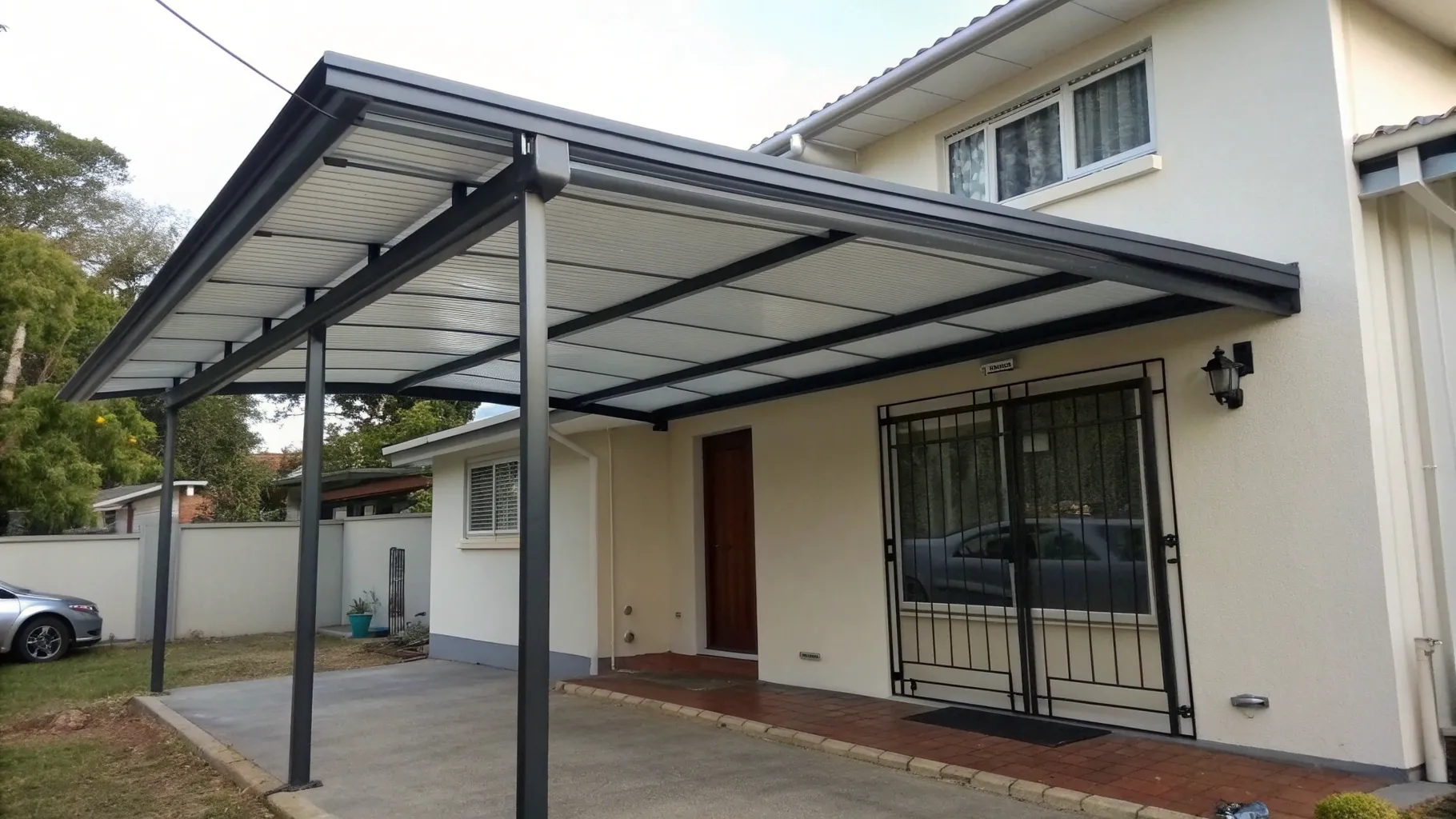
Buying a home for your first time can be exciting and stressful at the same time. Utah's real estate market is fast moving and competitive. Learning what you can do to help mitigate stressful situations and to prepare your self for the best chance of getting an offer accepted on your new Utah home.
Get an Estimate From Your Lender
Get an estimate from your lender before you put a contract on a house. Local Utah lenders are even better. Your lender should provide estimated closing costs, how much your monthly payment is going to be, all of those things, so you're fully aware of what you're going to have to pay at closing, what your monthly payment will be in full, ahead of time. The Consumer Financial Protection Bureau requires lenders to provide a Loan Estimate within three business days of your application. Because a lot of people, they get the pre-qualification, "Oh, I'm prequalified for $190,000." And then they go about shopping. But sometimes they forget, "What do I need for closing costs? What do I need? What's my actual payment going to be?" And sometimes, some lenders automatically give you an estimate when they give you the preapproval, but a lot of lenders don't. So you need to ask for that preapproval at the time that they qualify you, not their preapproval. Ask for the estimate at the time they qualify you.
Get Multiple Quotes from Lenders
This home buying tip goes along with the tip above. Do not just get one quote from a lender. I know what most people say is, "It's going to hurt my credit." The FICO scoring model allows you to get multiple quotes within a short time period for the same financing type. So all mortgage lenders, when they pull your credit, they're pulling your credit under one finance type. Don't know what the number is, but say the number is three. They're all putting in three. So the FICO scoring model knows that you're applying for three different mortgages, so it only impacts your credit once. If you need help finding quality Utah Mortgage Officers give us a call we can help.
Get Representative
Don't go with the listing agent or the builder. They have the sellers best interest in mind not yours. Make sure somebody is representing your best interest, especially as a first time home buyer, that's able to guide you through the process. Whether you're doing new construction or resale, have your own agent representing you. It's at no cost to you.
Understand the Loan Types
There are only four loan types, so I want to make that very clear. When you're applying for a mortgage, you're either applying for an FHA loan, and I have the FHA loan video, a conventional loan, a USDA loan or a VA loan. There are only four types of loans. Now in FHA, there might be different programs that a lender might have that fall under FHA, or that fall under conventional, but there are only four loan types, and usually you can take away two of those types, because VA is for veterans and their spouses, or USDA is in rural areas. So most people are qualifying for either FHA loans or conventional financing.

Owner Occupancy
So most mortgages, you're going to get the best rates and the lowest down payments if you're going to owner-occupy that home, so you are going to actually move into that house. And how do they know you're going to move into that house? Generally, because you sign saying that you are going to move into that house. And also, they know you have a job that's very close to where the location of the house is. So for example, if you are living in Arizona, and you're trying to buy a house in Utah, and you don't have a job yet in Utah, that's not owner occupancy, unless you can prove that you are a remote worker, which a lot of people have moved to virtual. If you get some kind of verification from your employer that you work remotely, then that's possible.
But a lot of time, when you're moving out of state, you're not considered an owner occupant until you have a job in the state you're moving to. That's how they know your intention to move to that state, because you're employed in that state, and that's generally how they verify it. Now you can purchase a property anywhere, but some of the things you're going to find are, it's going to be a much higher down payment for a non-owner occupied mortgage, and probably a little bit higher interest rate as well. So that's why, first time home buyers, if you're intending to buy in another state, you need to think about how you're going to get employment first in that state, or if you are a virtual worker, that you're going to be able to verify that with your employer, verify it with the mortgage lender.
Student Loans
If you have student loans, they will impact in some way or another your debt to income ratio. So you need to make sure that if you're not on a plan that allows you to pay off in full, with your loan, with your current payment, so say you're on a 10 year standard payment plan, they'll generally take that payment. But a lot of people are on income based plans, and they are not going to take your income based payment necessarily depending on your loan type. There's a video about that. So you want to, if you're not paying your monthly payments in full, you're on some kind of modified payment plan, that could affect your ability to qualify because the lender may look at that and say, "Well, if it came out of one of those plans, would that person still be able to pay their mortgage?" So just think about that with student loans and work that through with your lender prior. Don't wait till the last minute, and then be surprised that you are not able to qualify based on your student loans.
Mortgage Options with no and Low Down Payments
Utah has a new home buyer program that offers zero down, this works great but they do have income caps. The Utah Housing Corporation offers various first-time homebuyer programs. If you're looking for mortgage options that are very low down payment, one would be FHA. FHA is 3.5%. Another one would be, that's conventional, is the conventional HomeReady mortgage, if you qualify. So HomeReady mortgage is a conventional loan product that allows you to put 3% down. There are some 100% financing options. There are not as many everywhere, but you can find some 100% options. But usually what I find is usually a higher interest rate if you find something at 100% financing.
Explore Utah Real Estate

5618 E SOUTH FORK RD, Provo, UT
$43,000,000
6 10 22,958 sqft

864 W SAPPHIRE SKY LN #546, St George, UT
$4,300,000
7 9 5,136 sqft

850 LAZY WAY #8, Francis, UT
$1,300,000
4 4 2,755 sqft
Know your Credit Scores
know all three of your credit scores. There are three credit scores, Experian, TransUnion, and Equifax. You need to know all three of those, because the lender is going to look at the middle score. So when they're evaluating your credit worthiness, they're generally going to look at that middle score. So make sure you know your three credit scores.
Understand your Debt to income ratio (DTI)
Utility payments do not count into your DTI. That's probably the number one question I get when I'm trying to show people how to calculate their debt to income ratio. They're asking me, "What about my utility payments?" Or, "What about my rent?" Or, "What about my cell phone?" Whatever that is, they're not included because you didn't borrow that money, so it's not considered debt. So when you're looking to calculate your debt to income ratio, you only include instances in which you borrowed money.
Budget
Do a budget with your spouse, do a budget by yourself, and budget out how you're spending your money, especially as you get into trying to save for home ownership. You should be living on a budget, a written budget, every month.
Prioritize your home
Buy a house before you buy a car. Let me say that again. Buy a house before you finance a car. I mean, you could have a car and you pay cash for it. But a lot of times people are buying very expensive cars, and then they can't afford a house because their payment, their car payment is too high. So car payments or cars are depreciating assets. They're going to go down in value as soon as you start driving them. So if you're really trying to build wealth, you want to prioritize a house, if you're going to buy one, over a car.
And then be very mindful if you have to finance a car. My last few cars, I got one from my dad that he was about to, he didn't want to have two car payments, so I got it from him. Then I got another car, I paid cash for it, $5,000, after that car stopped working. So find a way to get a car cash if possible. And if not, get the lowest, lowest payment you can find, because when you're trying to calculate your debt to income ratio, if you have student loans and a car payment, there's not a lot of room left for a mortgage. So the less debt you have the better.
File Your Taxes
You'll be surprised how many people, especially first home buyers I work with, that have not filed their most recent tax returns. I didn't even realize this until I started working with a lot of first time home buyers. A lot of people don't file their taxes, and when it's time for them to get their mortgage approved, they're scrambling to get their taxes together. File your taxes, particularly if you owe, and then save all of your paperwork. They're going to look for the last two years. If you owed in the last two years and you make payments or in a payment plan, keep all of your paperwork, your IRS tax transcripts. The IRS will hold you up from closing on your house because the lender may ask for something. They definitely always want verification that if you owe, you actually paid what you owed.
That comes up a lot, where a lot of my clients in the underwriting process have to verify that if their tax return said that they owe even $30, $500, the lender generally wants verification that those taxes are paid. So make sure you're filing your taxes. If you're self-employed, need to talk to your accountant, or I would have a professional do my taxes when I'm preparing to buy a house, because you're going to need two years of tax returns showing your income in order to qualify for a house, especially for anybody, but self-employed people really need good documentation of their income.
More Properties You Might Like

7665 STERLING DR, Park City, UT
$6,100,000
5 6 4,975 sqft

1700 W 2700 N #36, Pleasant View, UT
$230,000
4 2 2,100 sqft

5033 W DAYBREAK PKWY, South Jordan, UT
$384,900
2 3 1,548 sqft
College can count as 2 years of employment
If you are in college and you want to buy a house right out of college, your college generally counts as two years of employment. So say you went to school for nursing, you get your first job, and you're like, "Oh, do I have to have two years on the job?" Usually not, especially for teachers, any kind of stable employment. If you go straight from college to your job, you do have to have a job, but your college counts for the two years of employment that is typically required by mortgage lenders.
Home Inspections
Always get a home inspection. Never buy a house without a home inspection.
Long Term Goals
Real estate is long term, so you're either a home owner, that you are buying for yourself, and then over the long term, more than likely that home is going to increase in value. Or you're an investor that wants a quick flip, and that's a different way to buy property. So you need to see, okay, am I a homeowner that's going to build over the long term through real estate, or am I an investor that wants a quick flip? Because the way you're going to approach buying is going to be very different. Typically, at least right now on this channel, I'm talking about people that want to live in their house for at least five years or more.
3 major factors for home loans
There's really only three things that you need to get a mortgage: income, credit, and low debt, or your debt is going to be evaluated, So depending on your debt to income, remember that debt to income ratio? It depends on what kind of house a lender will qualify you for. That's very important. It's one of the things that people, I think, need to go ahead and calculate, because a lot of people ask me, "Well, I make $40,000 a year. Can I qualify for a house?" Yeah, you could qualify for a house, probably. But if you have debt that's more than 60% of your income, you won't be able to qualify, because where does that mortgage fit in? So those three things you need to evaluate for yourself. You need to evaluate your income, your debt and your credit. And typically, once you have all of those in line, you should be able to qualify for a mortgage.
Don't let your Mortgage process fall out
When you qualify for a mortgage, make sure that through that mortgage process, it typically takes about 30 days, maybe 40 days to close a loan. Make sure you're in the same or better financial position until you close. For example, when you first did the application, you were employed, hopefully you were employed. You had a certain amount of savings. You had a credit score. All of those things, you had a certain amount of debt. And if they approved you based on everything they saw during the preapproval process, you need to make sure, during that process, that nothing changes. So you don't go out and buy cars. You don't go finance your new refrigerator, your new furniture, you don't do anything that's going to increase your debt. You want to stay on your job, preferably the same job, because if you change employment, then they have to reverify all of your employment.
So you want to be very stable. You want to be the same way they saw you on the application. You want to be that same way or better when you're about to close, because I've seen people who were working, and then, especially in this environment, they get furloughed, or something happens and they can't qualify, or they go out and buy something or charge something, and now they're not qualified. So you want to make sure that you stay very consistent financially during the process.
Navigating the Utah real estate market as a first time buyer can be daunting, but with we are here to help you every step of the way from getting pre-approved, to writing the contracts and negotiating the best deals and protecting your best interest. If your looking for a licensed Utah real estate agent give us a call at 435-414-8597














